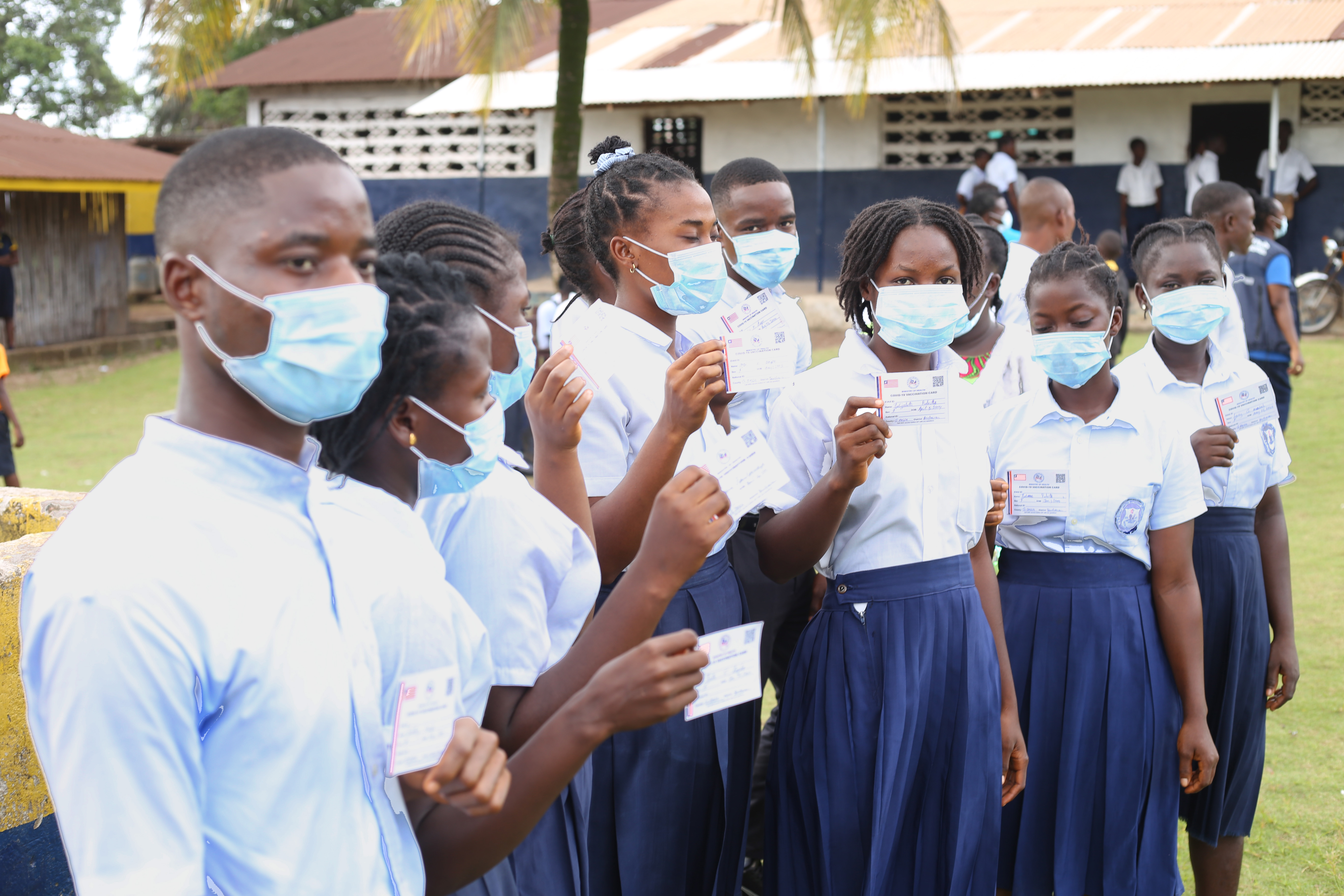Liberia recorded its first COVID-19 case on 20 March 2020, prompting the government to implement a range of strategies and interventions through the National Incident Management System. COVID-19 vaccines were one of the vital tools introduced in April 2021 for the prevention and response to COVID-19. Despite Liberia's successful history of introducing new vaccines, the rollout and uptake of the COVID-19 vaccine was slow in the first phase of deployment from April to December 2021. Challenges included misinformation and mistrust in public health interventions, inadequate community engagement, operational and logistical issues, inconsistent constitution and follow-up of vaccination teams, and payment delays from a previous vaccination campaign affecting motivation on the ground. In the second phase of deployment from February to July 2022, the WHO worked with the government to make improvements based on lessons learned from the first phase. As of December 2022, Liberia had fully vaccinated 81% of its population, up from 22% in February 2022, with a coverage rate of over 91% in each of the six counties for which the WHO was responsible. COVID-19 disease burden was lowered substantially and, as of March 2023; no COVID-19 deaths had been reported since March 2022 [1].
Key WHO Contributions
Partnering with the County Health Team (CHT) to strengthen coordination, planning, and supervision of the vaccination campaign including mapping communities and applying district and team vaccination targets
Shifting from passive to performance-based vaccination and mobile money payment mechanisms
Providing transportation to take vaccines to the last mile
Providing mobile teams with equipment to produce vaccination certificates in the field
Coordinating with the educational sector for parental outreach
Involving influential community leaders in social mobilization efforts.
How did Liberia, with the support of the WHO, achieve this?
In the second phase of the COVID-19 vaccination campaign in Liberia, the government delegated planning and implementation to the county level, assigning six counties to WHO Liberia. Working in collaboration with the Expanded Programme on Immunization (EPI), Community Health Teams (CHTs), and WHO field coordinators, WHO Liberia developed a clear roadmap for the vaccination campaign through microplanning. This involved mapping communities and setting district and team vaccination targets to ensure that resources were utilized effectively, and vaccination teams were deployed to areas with the highest priority.
WHO Liberia shifted its vaccination approach from passive to performance-based, using mobile money payments to disburse funds directly to counties and beneficiaries. Counties then determined their own operational needs, with guidance from WHO field coordinators, fostering ownership and boosting team motivation. Underperforming teams were identified and given targeted support for improved results, leading to better vaccine coverage, strengthened health systems, and a culture of performance and accountability. To ensure effective implementation, WHO Liberia held weekly monitoring meetings, providing a platform to assess progress, identify operational challenges, and guide improvements. This played a critical role in ensuring the timely and efficient movement of vaccines and supplies from regional cold chain stores to the counties, where vaccination teams were stationed.
To ensure vaccines reached even the most remote areas, WHO Liberia took proactive measures, hiring additional vehicles and utilizing alternative modes of transportation, such as airlifts. These efforts significantly reduced vaccine stockouts, ensuring equitable distribution across the country. Vaccination teams were provided with generators and printers to promptly issue vaccination cards upon vaccination. The reliable presence of both vaccines and vaccination cards generated demand for the vaccination campaign in the community.
“I am proud to say that the county administration, as a whole, took the lead in getting vaccinated and engaged the community to follow suit, thanks to our awareness activities. Our awareness campaign involved every sector in Nimba and included community radio which was pivotal in spreading the word. We continue to advocate for more people in the community to get vaccinated. Our success would not have been possible without our partners including WHO, and we thank them for their invaluable support."
- Hon. Nelson N. Korquio Superintendent, Nimba County.
Boosting demand for the COVID-19 vaccine was possible with WHO’s support to the county administration, in close collaboration with local leaders and community players such as superintendents, district commissioners, town chiefs, community radio stations, women's groups, and youth groups to mobilise communities and raise awareness about the importance of getting vaccinated. To ensure that all age groups are reached, WHO Liberia also assisted the Ministry of Health in partnering with the educational sector to inform parents that the Pfizer vaccine is available for children aged 12 and above.

A schoolgirl shows her vaccination card after receiving her COVID-19 vaccination in Liberia.
Photo credit: Leticia Nangwale, WHO Liberia.
“I am Bendu Karngar, a 12th grade student, I got vaccinated on campus and did not experience any side effects after the administration. Most of my school mates took the vaccine the next day because I had taken the vaccine”
- Bendu Karngar, student, Liberia
Close partnership between WHO field staff and County Health Teams (CHT) ensured coordination, data-driven planning, community engagement, and timely provision of logistical supplies. This was crucial for success, as was generous funding from multiple sources - the United States (US) Government, German Government, the US Centers for Disease Control and Prevention and the European Civil Protection and Humanitarian Aid Operations. In the next phase of the vaccination campaign, Liberia aims to achieve 90% vaccination coverage across the country by introducing pediatric vaccines, administering booster doses, providing additional support to low-performing counties, integrating COVID-19 vaccination into routine immunization, and engaging the government in co-financing for healthcare services. Upon the request of the Liberian government, WHO Liberia will extend its support to an additional county, Margibi, in the next phase of the campaign.
References
- Liberia COVID-19 daily situation report (sitrep) 1021

